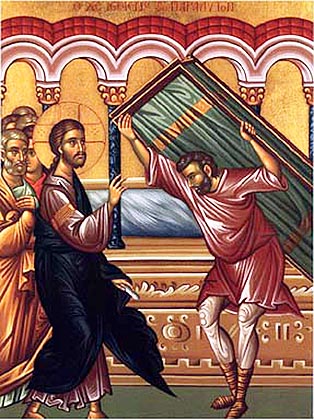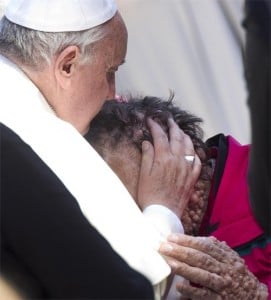
I know something about chronic illness in 2007 I contracted Lyme disease with a co-infection of Bartonella. To add to the bacterial stew my body was doing its best to fight off, a dormant Epstein-Barr Syndrome resurfaced. My immunity was so low that any defenses my body created were torn down. Since then I have learned that other chronic illnesses have come up in my life that have no cure. I have to manage them for the rest of my life. The idea of sin as an illness resonates with me on a deeply personal level.
In Orthodoxy many have called the church a spiritual hospital. I had heard this before, but wasn’t sold on the actual practice of it. Yet healing is always something that seems to pop up in discussions about faith. But where do we go to practice this?
There has always been a progressive movement of spirituality and spiritualism inside and outside of more traditional religious structures. I’m not talking about faith healing or the recent sad events concerning the death of a snake handler. There is an honest desire for something more mystical in religious experience.
As Bruce Epperly writes:
(P)erhaps, we need to ponder more appreciatively the unity of healing and curing in Jesus’ ministry. Jesus touched persons with leprosy and reached out to persons with chronic and socially stigmatized diseases; but in the processes of welcoming them to God’s realm, Jesus may also have encountered them in ways that energized God’s healing presence within their lives, transforming cells as well as souls. This is not magic or supernaturalism but a process of awakening people to the omnipresent movements toward abundant life in the quest for justice, in mystical experiences, and in moments of physical transformation.
Epperly makes a few valid points. Healing in modern Christianity has either been totally missing or tainted by magicians and snake oil salesmen. There is a division then between the miraculous moments of healing and what happens with us every day in our mundane lives. The irony is that Epperly is looking for a more holistic understanding of healing rather than seeing healing as a purely social event as does John Dominic Crossan. I agree with that sentiment. I also think that there is a sense of confusion about where to go with that sentiment.
The USA was built on the foundation that religious beliefs should not be enslaved by the state. One result of the 1st Amendment is an equal playing field for all religions to participate in the religious marketplace from massive cathedrals to snake handlers in Appalachia. Such a smorgasbord of religious mystical ideas and practices, doctrines, communities, and environments leaves a lot of choice if you have a desire for something in religious experience. Often the most accessible religion is the place where a seeker will gravitate. So if your Christianity doesn’t offer the experiences that you are seeking, why not find them in Unitarian Universalism, Buddhism, Sufism, of Kabbalah?
However, healing without all of the magic and spectacle of faith healers and mystical LSD-like trips has a deep tradition within Christianity. In fact it is a foundational understanding of the human condition in Orthodoxy and informs the function of the church and the central ritual in the Eucharist. The references to healing are profound among the Church Fathers and Mothers. It is part of the Divine Liturgy itself. One of the most important mysteries of the church is Holy Unction. The prayers that are at the opening of a prayer cycle for different parts of the day or different parts of the Liturgy are called the Trisagion Prayers. These prayers contain an important line:
All-holy Trinity, have mercy on us. Lord, cleanse us from our sins. Master, pardon our iniquities. Holy God, visit and heal us for thy Name’s sake.
In Orthodoxy sin itself is something of a disease or sickness from which we need healing. Sin in its various forms is the source of our alienation from God the source of life. Any sickness at all is not part of God’s image in us. Through our prayers and through our participation in the Liturgy we find that source of healing. The closer we come to God, the more healing we find. It’s no wonder the Eucharist is central. It is the act of bringing the body and blood of Christ into one’s self.
Sin is a chronic illness that has acute symptoms that pop up here and there. The result of sin going untreated is death. However, finding spiritual healing through the mysteries (sacraments) of the church results in life. To know that God wants nothing more than to heal us from our spiritual sickness isn’t just a comfort to me, but a knowledge that is healing in itself.










